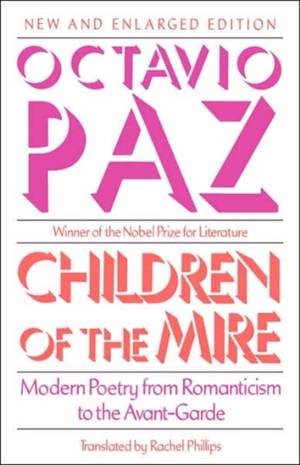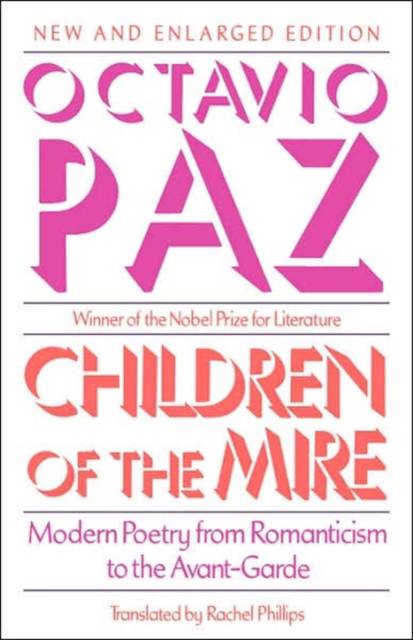
- Retrait gratuit dans votre magasin Club
- 7.000.000 titres dans notre catalogue
- Payer en toute sécurité
- Toujours un magasin près de chez vous
- Retrait gratuit dans votre magasin Club
- 7.000.0000 titres dans notre catalogue
- Payer en toute sécurité
- Toujours un magasin près de chez vous
Children of the Mire
Modern Poetry from Romanticism to the Avant-Garde, New and Enlarged Edition
Octavio Paz
43,45 €
+ 86 points
Description
"An instant classic."--Calvin Bedient, New Republic
Mexico's greatest modern poet reflects upon the twilight of modernity. If Octavio Paz was "one of the greatest poets that the Spanish-language world has ever produced," as Mario Vargas Llosa once said, he was also an astoundingly erudite critic. Here, in his 1971-1972 Norton Lectures, the Nobel laureate offers a potent and prescient diagnosis of the condition of poetry in the wake of literary modernism. Poetry's relationship with modernity, Paz argues, has always been tempestuous. If modern temporality posited the forward march of history toward the gates of a secular future, poetry is the "world of nonsequential time...a spiral sequence which turns ceaselessly without ever returning completely to its beginning." And if modernity is the age of revolution, a negation of the past propelled by critical rationality, poetry chafes against the strictures of reason, aimlessly dwelling in dreams, eroticism, mythology, and other realms inaccessible to revolutionary fervor. Meanwhile, avant-garde attempts to embrace the "aesthetics of change" and recreate the revolutionary spirit in verse have exhausted themselves. What's left, Paz maintains, is to return to the sinuous temporality of the poem itself, the irresolvable tension between the historical text and the abolition of history in the lyrical present. Mapping the changing meanings of modernity across a wide range of poetic movements, from English and German Romanticism, French Surrealism, and Latin American modernismo to the avant-garde experiments of Vicente García-Huidobro, Children of the Mire is not only a dazzlingly cosmopolitan work of literary criticism. It is also a revealing portrait of the one of the defining voices of Latin American literature.Spécifications
Parties prenantes
- Auteur(s) :
- Traducteur(s):
- Editeur:
Contenu
- Nombre de pages :
- 192
- Langue:
- Anglais
- Collection :
- Tome:
- n° 44
Caractéristiques
- EAN:
- 9780674116290
- Date de parution :
- 22-05-91
- Format:
- Livre broché
- Format numérique:
- Trade paperback (VS)
- Dimensions :
- 140 mm x 210 mm
- Poids :
- 258 g

Les avis
Nous publions uniquement les avis qui respectent les conditions requises. Consultez nos conditions pour les avis.






